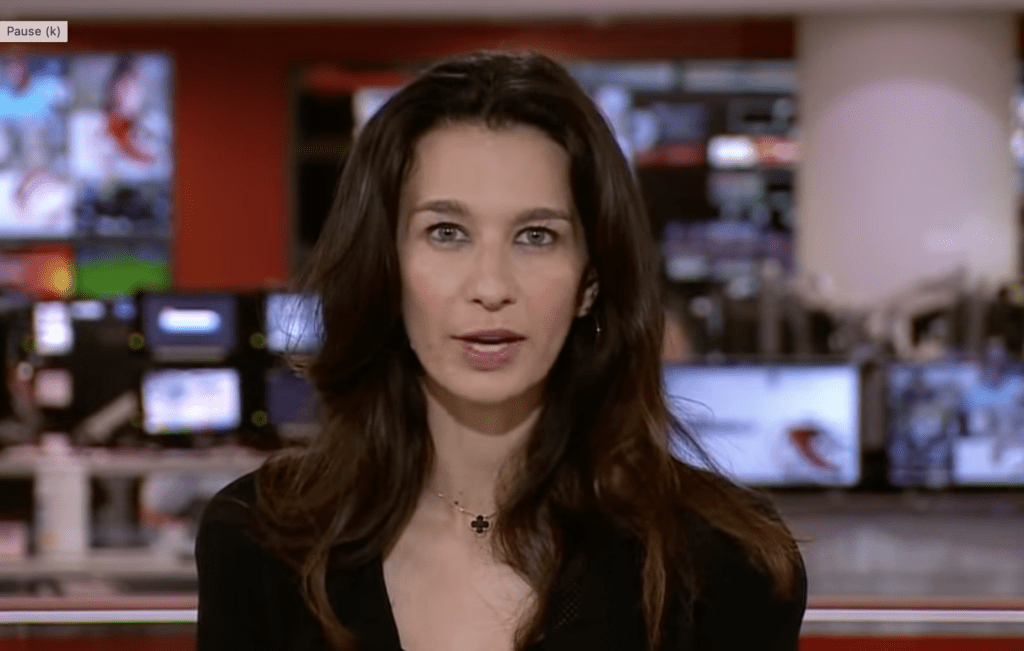It’s hard to imagine many journalists keeping their cool if they were called live on air by the Taliban. But Afghan-born Australian reporter for the BBC, Yalda Hakim came up against that exact reality yesterday and navigated it like an absolute professional.
Right in the midst of the extremist group toppling the Afghan government and taking over the city of Kabul, Hakim was called during her news segment by a Taliban spokesperson who had dialled her mobile phone.
Though she was in the middle of another interview, Hakim switched into gear, transferring Suhail Shaheen to loudspeaker and probing him about the Taliban’s intentions and plans for Afghanistan moving forward.
“OK, we have got the Taliban’s spokesman Suhail Shaheen on the line. Mr. Shaheen, can you hear me?” Hakim began.
After confirming that the line was clear, Shaheen began his speech about creating “peace” in the war-torn country and ensuring Afghan lives were kept safe.
“There should not be any confusion, we are sure the people of Afghanistan in the city of Kabul, that their properties and their lives are safe. There will be no revenge on anyone. We are the servants of the people and of this country,” he said.
“Our leadership has instructed our forces to remain at the gate of Kabul, not to enter the city. We are awaiting a peaceful transfer of power,” he added.
When asked whether the Taliban would move to public executions and amputation punishments as they had done previously, the spokesperson declined to respond clearly.
“I can’t say right now, that’s up to the judges in the courts and the laws. The judges will be appointed according to the law of the future government,” he said– confirming that the country would soon return to fundamental Sharia law.
Hakim also courageously pushed for answers about the welfare of women and girls in the country and their access to education.
“There is also a lot of concern from women in Afghanistan, in Kabul, they have been writing to me, they have been texting me, they are concerned that you will reimpose the regime of the 90s, where women couldn’t go to school, where girls couldn’t go to school, they couldn’t work. Can you give us some clarity on what your plans are for that?”
While Shaheen claimed that that “there is no tension on them, [women and girls] they are continuing their studies”, Hakim bravely contradicted him.
“In Herat, for example, women are telling me that when they arrived at the gates of their university yesterday, Taliban fighters told them to leave,” she said.
The interview went for 32 minutes with Hakim never once losing her composure or deviating from a clear line of questioning.
Scores of people across social media have praised the journalist– who fled Afghanistan on horseback with her mother as a baby before settling in Sydney– for her conduct under the most challenging of circumstances.
Hakim was born in Kabul, but came to Australia in the mid 1980s after her family fled with people smugglers during the Afghan-Soviet war. She attended Macarthur Girls High School in Western Sydney before studying journalism at Sydney’s Macleay College. She worked for the SBS before moving to London and taking up a role with the BBC in 2012.
Hakim has since reporting in some of the world’s most volatile regions including Yemen, Syria, northern Iraq and Libya. She won the United Nations Media Peace Prize in 2009, saying that she lives and works with an ethos that “there are no limits”.
“My parents instilled [in us] a belief that there are no limits, that we could succeed in whatever field we chose,” she said. “While global politics and issues of social justice were always discussed in my family home, it was Nancy’s stories about Fleet Street and the BBC that influenced my decision to become a journalist. As a kid, I would watch current affairs stories and think, ‘That will be me one day’.”


